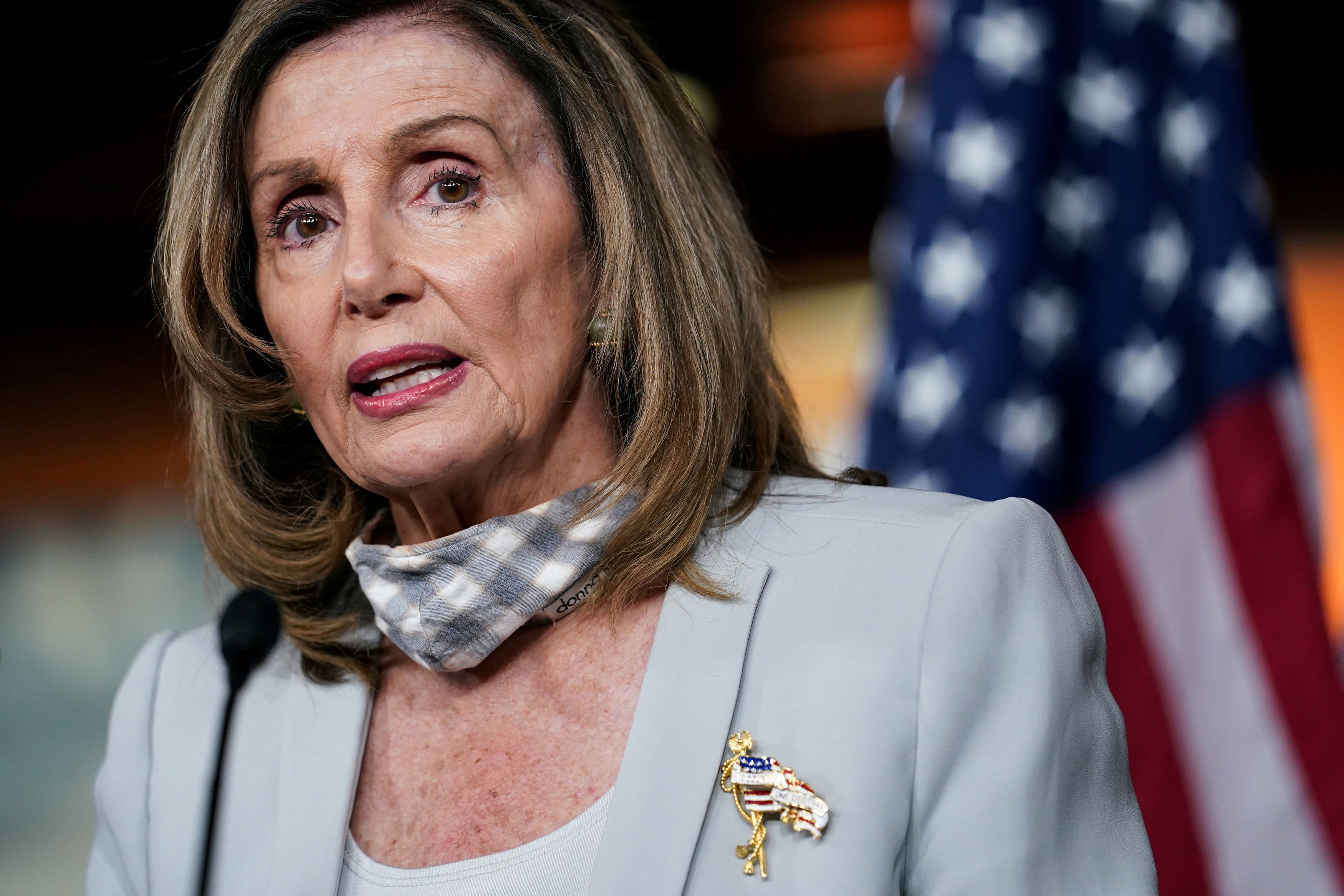
U.S. House Speaker Nancy Pelosi (D-CA) speaks during her weekly news conference on Capitol Hill in Washington, August 13, 2020.
Sarah Silbiger | Reuters
House Speaker Nancy Pelosi said Friday that President Donald Trump‘s coronavirus diagnosis could change the shape of talks toward an evasive stimulus deal.
“This kind of changes the dynamic because here [Republicans] see the reality of what we have been saying all along. This is a vicious virus,” the California Democrat told MSNBC, adding that she would pray for the president’s safety.
During a months long tug-of-war over how much money to inject into pandemic relief, Pelosi has repeatedly argued the GOP does not understand the gravity of the outbreak. While she and Treasury Secretary Steven Mnuchin are hundreds of billions of dollars apart on a price tag during last-ditch talks toward an aid agreement, Pelosi said she is “optimistic” about striking a deal.
“We always have to find a path, that is our responsibility to do so, and I believe that we will,” she said.
Later in the interview, Pelosi added, “We’ll find our middle ground. We’re legislators. We’ll get the job done.”
The speaker and Treasury secretary talked by phone Thursday but did not strike a deal on legislation to combat the health and economic damage from the outbreak. Pelosi did not specifically say whether she will talk to Mnuchin on Friday.
The House passed Democrats’ $2.2 trillion proposal Thursday night. Mnuchin has offered a $1.6 trillion package.
The scramble to send more assistance to Americans comes as the U.S. recovery from widespread economic shutdowns this year slows. Nonfarm payrolls increased by 661,000 in September, a lower number than expected. Airlines have asked the federal government for relief as they join other major corporations in announcing tens of thousands of new layoffs and furloughs this week.
On Friday, Pelosi said Democrats and the GOP “don’t have shared values” about how to contain the virus and what to put in legislation. While they have come closer to agreement on an overall price tag, direct payments, and small business aid, the sides remain divided over how much relief to send states and municipalities and whether to shield companies and schools from lawsuits.
Republicans have in recent months called for more coronavirus relief, but a deal has proven hard to find as they argue Democrats have expensive and unreasonable demands. Senate Majority Leader Mitch McConnell, among other GOP congressional leaders, has stressed the importance of coronavirus precautions including mask wearing, but some House Republican lawmakers and the president himself have not taken the practice seriously at times.
It is unclear whether the September jobs report or the president’s diagnosis will make Congress more likely to approve a relief bill before the Nov. 3 election. Political considerations have crept into the process as Republicans defend Senate control and Democrats try to keep their House majority.
Trump allies, including chief of staff Mark Meadows, touted the jobs report Friday morning as evidence of a swift and ongoing recovery, despite disappointing number.
“The economy continues to be robust and it’s a V-shaped recovery. Unfortunately, that’s not what everyone is focused on this morning,” Meadows told reporters.
Meadows, who was not wearing a mask, later added: “[Trump’s] first question to me this morning was, ‘How’s the economy doing? How are the stimulus talks going on Capitol Hill?'”
Underscoring frustrations with Pelosi’s approach of accepting only a comprehensive bill, eighteen Democrats voted against the $2.2 trillion legislation Thursday night. Most face competitive reelection fights in November and have criticized efforts to pass partisan legislation that could not become law.
The president’s diagnosis has forced Mnuchin and Pelosi, who met in person on Wednesday, to take precautions. Mnuchin told Pelosi on Friday morning that he tested negative for the virus.
The speaker said she took a coronavirus test but has not yet received results.




